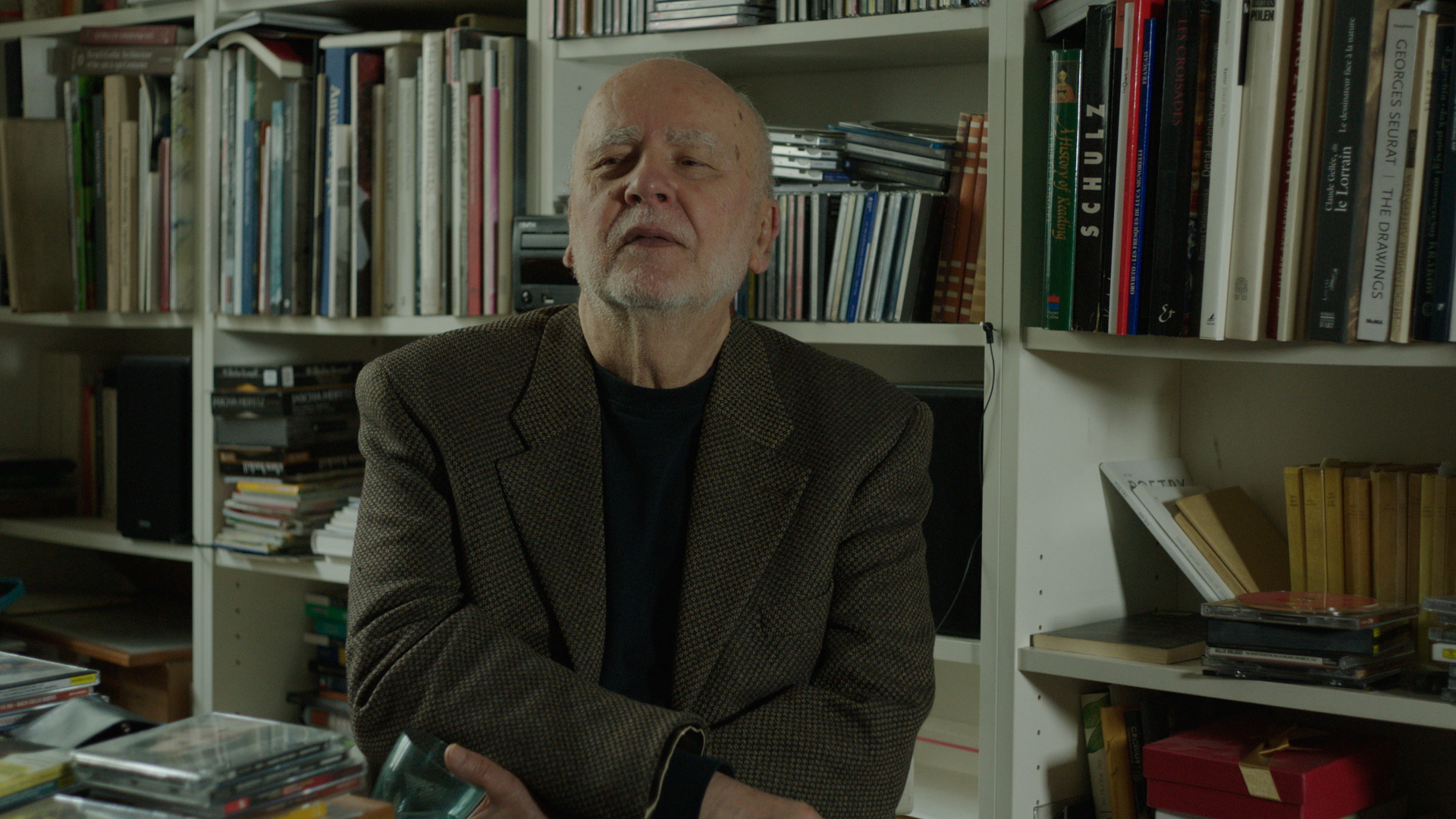NEXT STORY

Tremor
RELATED STORIES

NEXT STORY

Tremor
RELATED STORIES


|
Views | Duration | |
|---|---|---|---|
| 31. Solidarity, Solitude | 48 | 01:55 | |
| 32. The Flying University | 43 | 03:09 | |
| 33. The decline of communism | 40 | 03:00 | |
| 34. Martial law puts an end to my dreams | 45 | 02:44 | |
| 35. Happy times in Paris | 57 | 02:59 | |
| 36. France rejects my poetry | 49 | 04:46 | |
| 37. Paris-Houston | 47 | 02:24 | |
| 38. Tremor | 45 | 02:55 | |
| 39. My 'American episode' | 54 | 03:35 | |
| 40. My poem appears in The New Yorker | 53 | 03:38 |


Incidentally, I also received a letter from that publisher, Farrar, Strauss & Giroux, asking for my permission and whether this interested me. At the time, I had no idea of what kind of publisher this was so I don't know why I thought, oh this is just some tiny, provincial publisher and so I didn't reply to their letter because I thought, why should I? It's not that I was proud or being arrogant, but I just didn't believe in this. It wasn't until later that Kot Jeliński – Konstanty Jeliński who was a very eminent literary critic living in Paris – told me, 'Listen, Adam, this is the best publisher in America'. So then I wrote back to them straight away and it wasn't too late so the book was published and was well-received. Sometime after this, I was invited by the University of Texas which taught a creative writing course – and this wouldn't have been possible without this book because of course nobody knew who I was – and that maybe it was worth giving it a try. So this marked the start of the next era – the American era which became part of… I mean, I never lived in America permanently, I would just travel there for a semester. Every year, for 18 years, I would go to Houston each spring – it was spring in Texas but still winter in Paris – usually leaving in the last days of January and coming back at the start of May. When I think about it now, that was a perfect combination, Paris-Houston. There was a film by Wim Wenders called Paris-Houston [sic Paris-Texas] and my life was like the title of this film. According to Wenders, Paris-Houston. Eight months in Paris, four in Texas.
Nota bene też dostałem list z tego... to wydawnictwo Farrar, Strauss & Giroux – dostałem od nich list z pytaniem, czy się zgadzam, czy mnie to interesuje. I ja wtedy nie miałem pojęcia co to jest za wydawnictwo i nie wiem czemu pomyślałem: 'A, to jest pewnie jakieś małe, prowincjonalne wydawnictwo' i nie odpisałem, bo pomyślałem, coż ja będę im odpisywał. Nie to, żebym był jakiś bardzo dumny czy arogancki, ale jakoś nie wierzyłem w to. Dopiero potem Kot Jeleński, Konstanty Jeleński, bardzo wybitny krytyk literacki, który mieszkał w Paryżu, powiedział mi: 'Słuchaj, Adam, to jest najlepsze wydawnictwo amerykańskie'. No więc odpisałem wtedy szybko i nie za późno, nie za późno, tak więc to... ta książka się ukazała, była dobrze przyjęta i jakiś czas później dostałem zaproszenie do Uniwersytetu w Teksasie, który uczył creative writing – co nie byłoby możliwe bez tej książki, oczywiście nikt by nie wiedział kim ja jestem – i że może warto spróbować. No i to... to był początek następnej jakby ery – ery amerykańskiej, która była częścią... to znaczy ja nigdy nie mieszkałem w Ameryce na stałe, tylko jeździłem na semestr. Co roku przez 18 lat jeździłem do Houston na – zawsze wiosną, to znaczy wiosną w Teksasie, bo w Paryżu jeszcze była zima, zwykle pod koniec stycznia wyjeżdżałem i zostawałem do pierwszych dni maja. I jak teraz wspominam, to właściwie to była doskonała kombinacja, Paryż-Houston. Był taki film kiedyś, Paryż, Houston [sic: Paris, Texas] Wima Wendersa i ja według tego tytułu tego filmu... moje życie się ułożyło. Według Wendersa, Paryż, Houston. Osiem miesięcy w Paryżu, cztery w Teksasie.
Adam Zagajewski (1945-2021) was a Polish poet, novelist, translator and essayist. He was awarded the 2004 Neustadt International Prize for Literature, the 2016 Griffin Poetry Prize Lifetime Recognition Award and the 2017 Princess of Asturias Award for Literature. He is considered as one of the leading poets of the Generation of '68 or the Polish New Wave (Polish: Nowa fala) and is one of Poland's most prominent contemporary poets.
Title: Paris-Houston
Listeners: Andrzej Wolski
Film director and documentary maker, Andrzej Wolski has made around 40 films since 1982 for French television, the BBC, TVP and other TV networks. He specializes in portraits and in historical films. Films that he has directed or written the screenplay for include Kultura, which he co-directed with Agnieszka Holland, and KOR which presents the history of the Worker’s Defence Committee as told by its members. Andrzej Wolski has received many awards for his work, including the UNESCO Grand Prix at the Festival du Film d’Art.
Tags: Paris-Texas, USa, America, Kot Jeliński
Duration: 2 minutes, 24 seconds
Date story recorded: March 2018
Date story went live: 25 April 2019